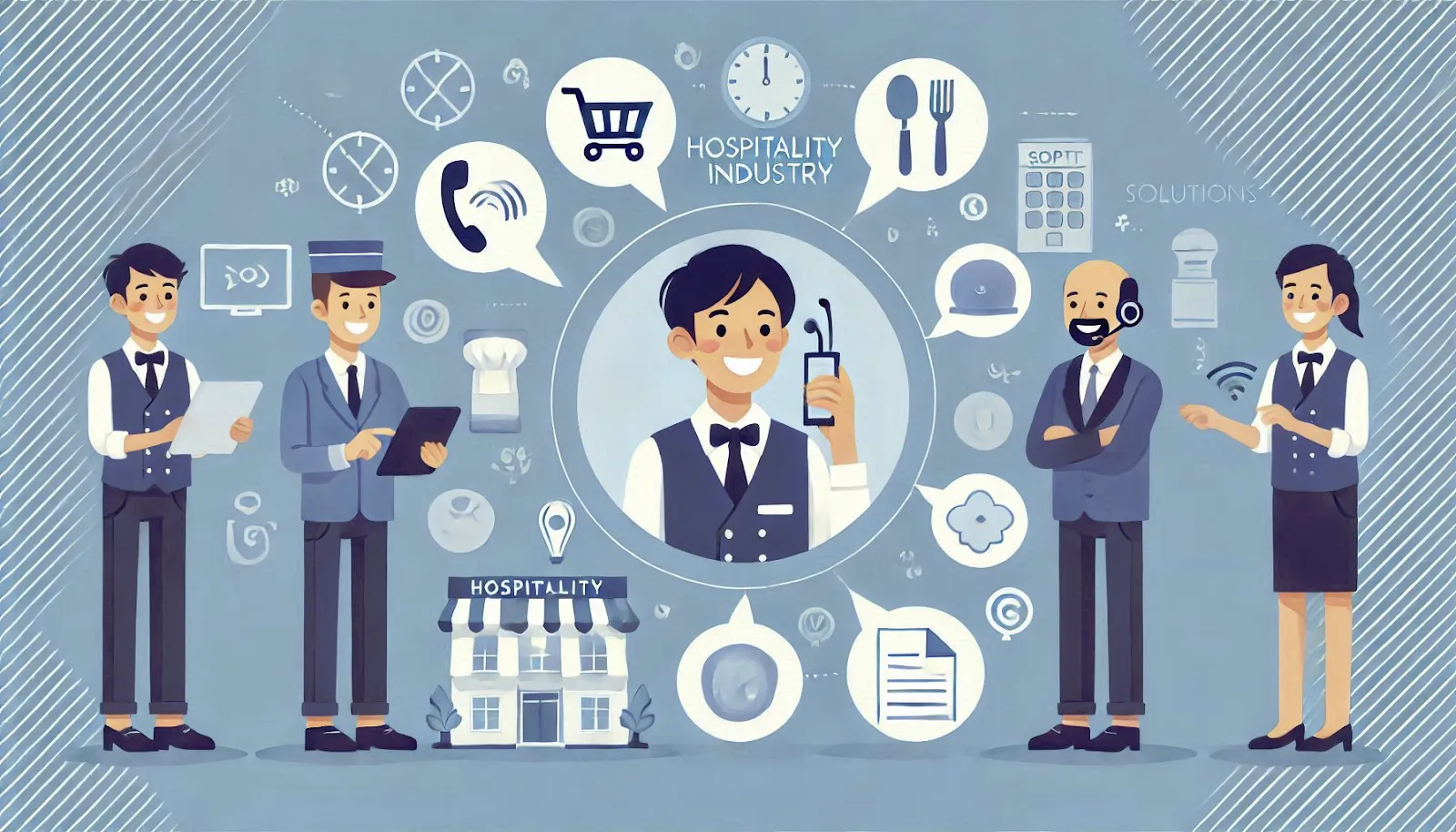How to Streamline Communication in Hospitality Management

Clear communication is essential in hospitality. It keeps employees coordinated, guests satisfied, and operations running smoothly.
The industry faces unique challenges, including fast-paced environments, diverse teams, and high guest expectations. Without streamlined communication tools and strategies, things can quickly unravel.
With that in mind, here are some practical tips for improving both internal and external communication in hospitality management. From adopting the right tech to conjuring a culture of openness among staff members, these insights can help you build a more connected team.
Utilizing Virtual Platforms for Seamless Team Coordination
Modern technology offers hospitality managers effective ways to streamline team communication. Platforms like eztalks make it easy to keep everyone on the same page, whether they're working in the lobby or housekeeping.
Virtual tools simplify scheduling, task delegation, and updates. They help by letting you:
- Share daily schedules quickly with all staff members
- Send instant updates about guest requests or emergencies
- Hold virtual check-ins with remote or night-shift teams
These platforms reduce miscommunication by centralizing information in one place. Instead of chasing people down for updates, employees can access everything from their devices.
Implementing solutions into your management strategy creates a more organized workflow. It eliminates unnecessary back-and-forth and helps employees focus on providing excellent service instead of untangling logistics.
Best Practices for Guest Interaction Communication
Effective communication with guests shapes their experience. Clear, professional interactions help build trust and ensure satisfaction throughout their stay.
Train your staff to:
- Actively listen to understand guest needs without assumptions
- Use simple language that avoids confusing or industry-specific terms
- Confirm requests to avoid misunderstandings by repeating them back
Encourage your team to handle complaints calmly, ensuring they empathize with the guest’s concern before offering a solution. Strong interpersonal skills can often defuse tension better than any policy alone.
Improving employee confidence through skill development is also crucial. For instance, sending employees on one of the best hospitality courses 2025 has to offer will enhance their professionalism and clarity in approaching customer service situations.
Reinforcing these methods regularly means you’ll create an environment where guests feel valued and understood.
How to Build a Culture of Open Dialogue Among Staff
A culture of open dialogue promotes collaboration and reduces misunderstandings. Hospitality teams thrive when employees feel comfortable sharing ideas or addressing concerns.
Encourage open communication by:
- Holding regular team meetings where everyone can voice opinions
- Using anonymous suggestion channels for more sensitive feedback
- Recognizing and valuing employee contributions publicly
Also, earn trust through transparency in management decisions. Share company goals, explain new policies clearly, and be available to address questions openly. When employees trust the organization they work for, motivation spikes by 260%.
Managers should lead by example. They should be approachable, actively listen when staff speaks up, and avoid dismissing their input too quickly. This creates a ripple effect that normalizes openness across all levels.
An inclusive environment helps prevent internal conflicts while boosting morale. When staff know their voices matter, they’re more engaged with the team’s success.
Training Employees to Use Technology Effectively in Communication
Technology is only as useful as the people using it. Training your staff ensures they can maximize the tools provided, improving communication speed and clarity.
Focus on training employees by:
- Demonstrating how to use communication platforms step-by-step
- Offering hands-on practice sessions for new systems or updates
- Providing quick reference guides or tutorials for easy recall
Ensure ongoing support is available through dedicated IT assistance or peer mentors. This allows team members to address questions without delays that disrupt workflow.
For added convenience, incorporate real-life scenarios into training using virtual platforms. For example, simulate situations like handling a sudden influx of guest requests through the system. Practical application helps staff grasp how these tools streamline their daily tasks.
With proper training, technology becomes a tool that empowers employees rather than an obstacle slowing them down.
The Bottom Line
Streamlining communication in hospitality is a process of encouraging better collaboration and understanding. Implementing virtual platforms, effectively training staff, and encouraging open dialogue can create an environment where communication thrives.
When teams communicate well, they deliver better guest experiences. Clear processes ensure smoother operations while boosting employee morale. Start making these adjustments today to build a stronger foundation for your hospitality management strategy, and see the positive impact it has on your team and guests alike.